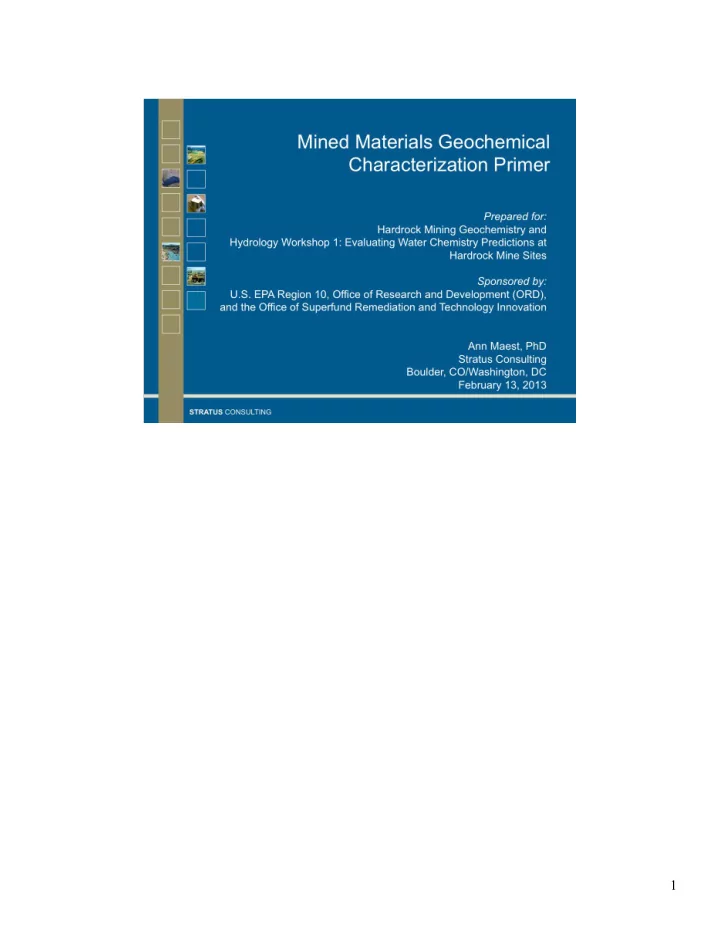

1
2
3
4
5
6
7
8
How much is enough? - No magic # - Some statistical approaches - Of course don’t use this for # of HCTs, more geared toward ABAs and static testing 9
10
11
12
13
14
Kinds of sulfur: total, pyritic, sulfide, organic, sulfate Part of acid-base accounting (ABA) testing; distinguishes between forms with more (pyritic, sulfide) and less (organic, sulfate) acid generation potential (AGP) Issues: which form to use in AP (over/under-estimate AGP), does not confirm identity of minerals that contain the sulfur 15
16
17
18
19
20
21
22
Crush rock (<6.3 mm for waste rock, 150 mm for tails), place in column HCT: 3-d alternating humid air/dry air cycles, flush every week, 20+ wks Measure pH, sulfate, metals, etc. in leachate Column tests – larger columns and particle size (<~25 mm), “trickle leach” 23
Should run kinetic tests on samples with full range of ABA results – need to know concentrations for input to geochemical models 24
25
26
• Compare field and HCT splits • First flush in weathered, then decreasing concentrations – “steady state” = last 5 week average • Different trends if weathered or not • Need to run even if ABA is PAG – to know concs for inputs to models 27
28
29
30
Recommend
More recommend